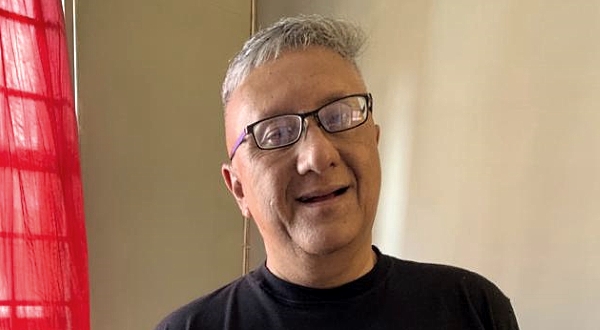
By Mohsin Abdullah
I've written about this earlier this year albeit for another news portal.
It's about how hard it is for our politicians to apologize when they have said something they should not have.
And when they do "apologize" or are "forced" to do so, they have their own style in saying sorry.
Our politicians have a knack, or rather are experts, in saying sorry without saying sorry.
You and I have seen this happen many times before, like when politicians, ministers included, shoot off their mouths making racist rants and slurs, sexist remarks and sweeping statements hurting the feelings of certain communities, in particular remarks with regards to the "favorite P" word – "pendatang".
They do not apologize even after their mistakes have been pointed out to them. Instead, most times amidst the hue and cry over what they said, the politicians would stand firm, adamant to show the so-called credibility and firmness to "prove" they have not done wrong.
When things get "hotter", perhaps confronted by evidence in the form of video or audio recording of the things they said, they would take the "politically correct" step to apologize, in a way only they do best, unlike how you and I usually do when we have wronged someone. How? By saying "I did not mean it that way" or "I did not mean to hurt you or your community".
Hence, they would go on to apologize, so it seems, by saying "I am sorry you felt that way".
There you have it. The word "sorry" is there, if sorry is indeed the word everybody is waiting for.
Hence, I say it again, our politicians have perfected the "art" of saying sorry without saying sorry. The only thing is that the "art" is not beautiful. In fact, it's ugly because the word "sorry" used has no meaning as it does not carry any "feel" or sense of remorse.
To me that's not an apology. If it is, then our politicians have given apologizing a total new meaning.
As I see it, what they have succeeded in doing is to make the people they have hurt in the first place appear to be the ones who should be blamed for feeling what they are feeling, meaning to be blamed for feeling hurt. For that, and only that, are the politicians sorry. But they are not sorry for making their remarks in the first place.
According to experts of human behaviors, apologizing can make some people feel vulnerable or feel they are in danger of losing power and status.
To some people, saying "I am sorry" is like admitting they are inadequate or incompetent, thus making admitting the mistakes so much harder to do. And some people find saying sorry humiliating.
I am writing all this again because we now have an "apology" made by PAS' Nik Muhamad Zawawi Salleh for his remarks that the Christian Bible was "terpesong" or distorted on the issue of alcohol consumption.
His remarks hurt many, Christians especially.
The Association of Churches Sarawak then demanded Zawawi to retract his remarks which he declined, saying they had no right to be offended although he was willing to hold a "harmonious dialogue" on the matter.
Anyway, his "apology" at the Dewan Rakyat recently was in response to an order by Speaker Datuk Azhar Harun for his statement to be retracted and for him to apologize.
Hence he abided.
However, Zawawi maintained that he had no intention to insult any religion and was only out to defend the "original Injil"or Bible as revealed to Prophet Isa. Sound familiar so far?
There's more. Zawawi was also quoted as saying, "I apologize if anyone felt offended. It was not my intention. What I intended was I wanted to defend the original Bible revealed to Prophet Isa without any changes."
That did not satisfy many people, especially Christians obviously. To them that was not an apology. For one they said Zawawi acted only upon the order of the Speaker of the House.
To them this is another "classic" case of saying sorry without saying sorry.
He could do better, no doubt, but to be honest I do not see Zawawi saying anything else other than what he had said.
He is, after all, a politician from an "Islamist" party.
Christians have their own belief on the Bible and Jesus Christ. Zawawi, on the other hand, was talking as a non-Christian and of Prophet Isa.
To him, putting his so-called apology in any other way is simply not possible, not to mention unfitting his image and narrative.
The Christian Federation of Malaysia has expressed its disappointment and dismay over Zawawi's "non-apology".
Much as one feels for them, but if anything that would only do Zawawi's standing in PAS a lot of good as his supporters would be saying here is their leader who is humble enough to apologize but his "kind gesture" is not appreciated. Thus, they would throw their support for him.
Turning a minus into a plus. That is politics!
Still, I end the same way I ended the article I wrote back in April, i.e. by saying to people who cannot or find it hard to say sorry: I am sorry for you for not being able to say sorry.
(Mohsin Abdullah is a veteran journalist and now a freelancer who writes about this, that and everything else.)
ADVERTISEMENT
ADVERTISEMENT


































